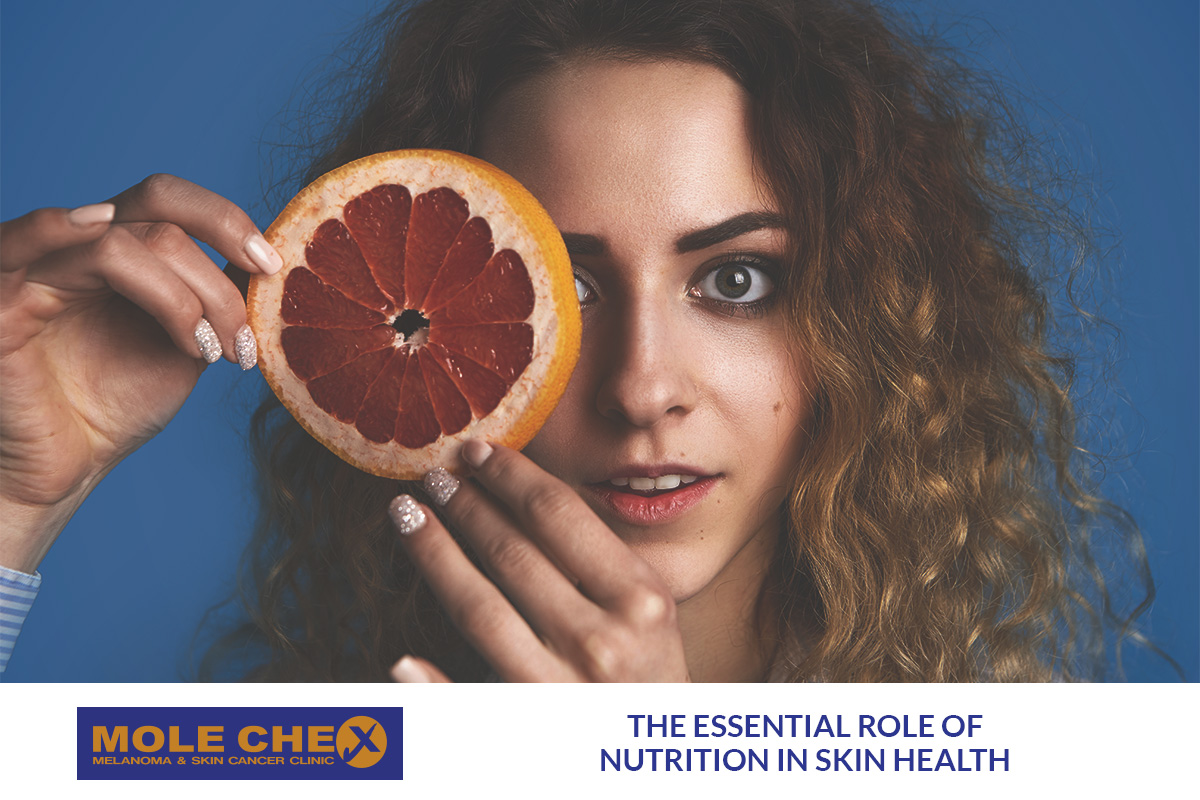The Essential Role of Nutrition in Skin Health: What to Eat for a Radiant Complexion

It takes more than just products and procedures to maintain healthy, radiant skin. What you eat has a significant effect on your skin’s appearance and condition, nutrition is crucial to your skin’s wellness. In addition to non-invasive or surgical procedures, eating a balanced diet is essential for maintaining healthy skin. In order to help you attain a radiant complexion, we will examine the vital nutrients and foods in this post. We will also offer helpful advice and insights to help you improve your skincare regimen from the inside out.
What We Will Discuss
In this article, we will cover:
- The connection between diet and skin health
- Key nutrients for radiant skin
- Foods that promote a healthy complexion
- Tips for incorporating skin-friendly foods into your diet
The Connection Between Diet and Skin Health
Your skin is a reflection of your overall health, and your diet plays a vital role in maintaining its vitality. Foods high in nutrients give your skin the building blocks it needs to create collagen, heal itself, and fend off damage from outside factors. Preventing premature ageing, lowering the risk of skin disorders, and improving the texture of the skin can all be achieved with a balanced diet high in vitamins, minerals, and antioxidants.
Key Nutrients for Radiant Skin
Several key nutrients are essential for maintaining healthy skin. Incorporating these into your diet can help you achieve a glowing complexion:
Vitamin C
Vitamin C is a powerful antioxidant that helps protect the skin from free radical damage, promotes collagen production, and aids in the repair of damaged skin cells. Foods rich in vitamin C include:
- Citrus fruits (oranges, lemons, grapefruits)
- Berries (strawberries, blueberries, raspberries)
- Kiwi
- Bell peppers
- Broccoli
Vitamin E
Vitamin E is another potent antioxidant that helps protect the skin from oxidative stress and supports skin healing. It also works in conjunction with vitamin C to provide a double defence against UV damage. Sources of vitamin E include:
- Nuts and seeds (almonds, sunflower seeds)
- Spinach and other leafy greens
- Avocados
- Olive oil
Omega-3 Fatty Acids
Omega-3 fatty acids are essential fats that help maintain the skin’s lipid barrier, keeping it hydrated and plump. They also have anti-inflammatory properties that can reduce redness and irritation. Foods high in omega-3 fatty acids include:
- Fatty fish (salmon, mackerel, sardines)
- Flaxseeds and chia seeds
- Walnuts
- Soybeans
Zinc
Zinc is crucial for skin health as it helps with cell production and repair, reduces inflammation, and protects against UV radiation. Zinc-rich foods include:
- Shellfish (oysters, crab)
- Meat (beef, chicken)
- Legumes (chickpeas, lentils)
- Pumpkin seeds
Beta-Carotene
Beta-carotene is a precursor to vitamin A, which is vital for skin cell production and repair. It also provides antioxidant benefits that protect the skin from sun damage. Foods high in beta-carotene include:
- Carrots
- Sweet potatoes
- Pumpkin
- Dark leafy greens (kale, spinach)
Foods That Promote a Healthy Complexion
In addition to the key nutrients mentioned above, incorporating a variety of skin-friendly foods into your diet can enhance your skin’s appearance and health. Here are some of the best foods for a radiant complexion:
Berries
Berries are packed with antioxidants, vitamins, and fibre, making them excellent for skin health. They help fight free radicals, reduce inflammation, and promote collagen production.
Leafy Greens
Leafy greens like spinach, kale, and Swiss chard are rich in vitamins A, C, and E, as well as minerals like iron and calcium. These nutrients help detoxify the skin, promote cell turnover, and maintain a youthful appearance.
Fatty Fish
Fatty fish such as salmon, mackerel, and sardines are high in omega-3 fatty acids, which keep the skin hydrated, reduce inflammation, and protect against sun damage.
Nuts and Seeds
Nuts and seeds, including almonds, sunflower seeds, and flax seeds, are rich in healthy fats, vitamin E, and other antioxidants that nourish and protect the skin.
Avocados
Avocados are a great source of healthy fats, vitamin E, and vitamin C, all of which contribute to skin hydration, elasticity, and overall health.
Sweet Potatoes
Sweet potatoes are high in beta-carotene, which helps protect the skin from sun damage and promotes a healthy glow.
Green Tea
Green tea is rich in polyphenols, which have anti-inflammatory and antioxidant properties. Drinking green tea can help reduce redness, protect against UV damage, and improve skin elasticity.
Tips for Incorporating Skin-Friendly Foods into Your Diet
- Start with Breakfast: Incorporate berries, nuts, and seeds into your morning smoothie or oatmeal.
- Choose Colourful Veggies: Aim to fill half your plate with colourful vegetables at each meal to ensure a variety of nutrients.
- Snack Smart: Opt for nuts, seeds, and fruits as snacks to keep your skin nourished throughout the day.
- Hydrate: Drink plenty of water and include hydrating foods like cucumbers, watermelon, and leafy greens.
- Balance Your Diet: Ensure you are getting a good mix of proteins, healthy fats, and carbohydrates to support overall skin health.
Conclusion
Achieving and maintaining a radiant complexion involves more than just topical skincare treatments. A diet rich in essential nutrients and skin-friendly foods can significantly enhance your skin’s health and appearance. By incorporating these foods into your daily routine, you can support your skin from the inside out, promoting a healthy, glowing complexion.
Explore the benefits of nutrition for skin health today and take the first step towards achieving radiant skin through mindful eating! 🌟
Learn more by reading other articles :
